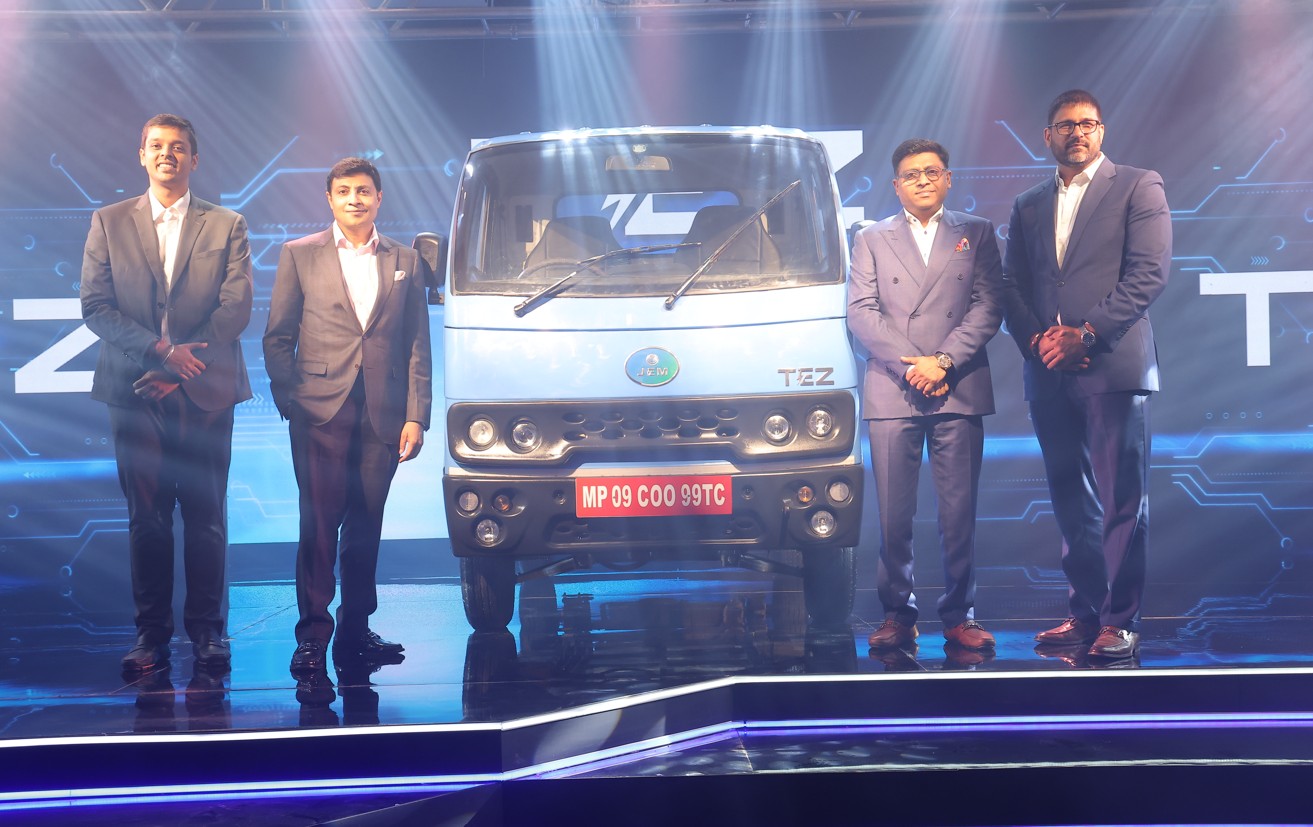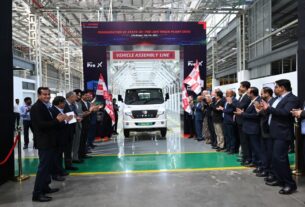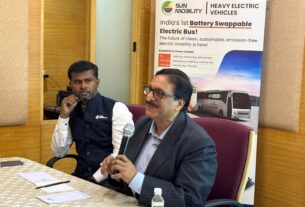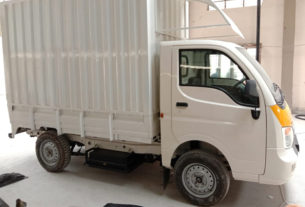By Abhilash
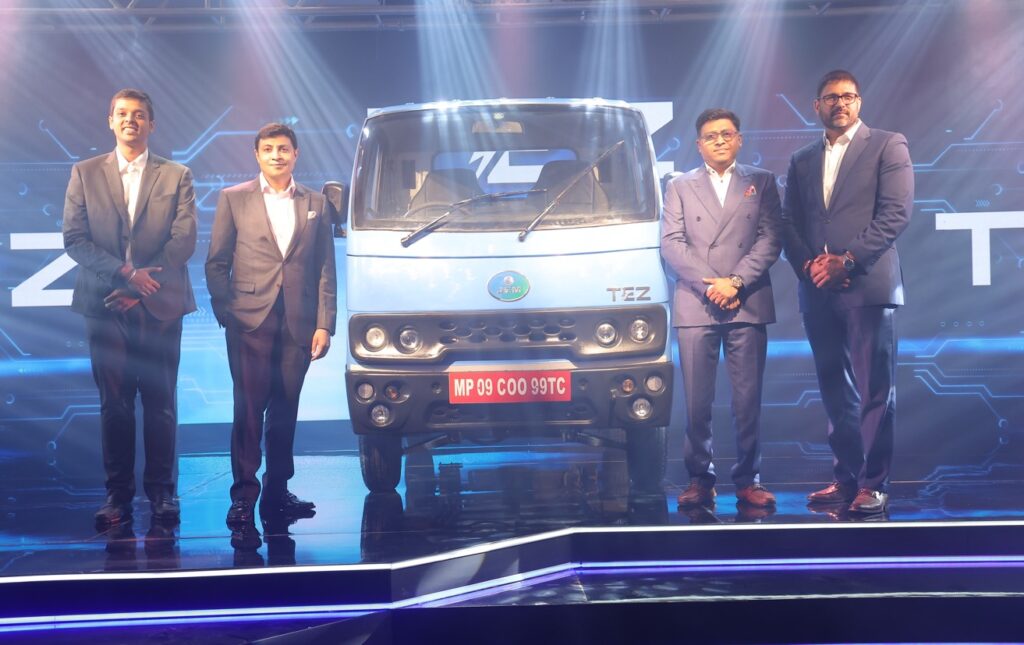
Jupiter Electric Mobility (JEM), the electric vehicle arm of the Jupiter Group, has marked a major milestone in India’s transition to sustainable mobility with the launch of its flagship model, the JEM TEZ, and the inauguration of a state-of-the-art manufacturing plant in Pithampur, Indore. This significant event not only highlights JEM’s commitment to India’s Atmanirbhar Bharat vision but also positions the company as a major player in the electric light commercial vehicle (e-LCV) segment.
At the heart of this milestone is the JEM TEZ, an advanced electric light commercial vehicle that boasts industry-leading specifications, including a true range of over 190 kilometers, an 80kW peak motor power, and a 23% gradeability. With a 1.05-ton certified payload, the JEM TEZ is built to tackle the challenges of last-mile logistics and urban freight transport. Its fast-charging capability enables it to regain over 100 kilometers in just one hour on any CCS2 charger, making it a game-changer in its segment. The vehicle is launched with a starting ex-showroom price of ₹10.35 lakhs, positioning it as an affordable option with market-leading features.
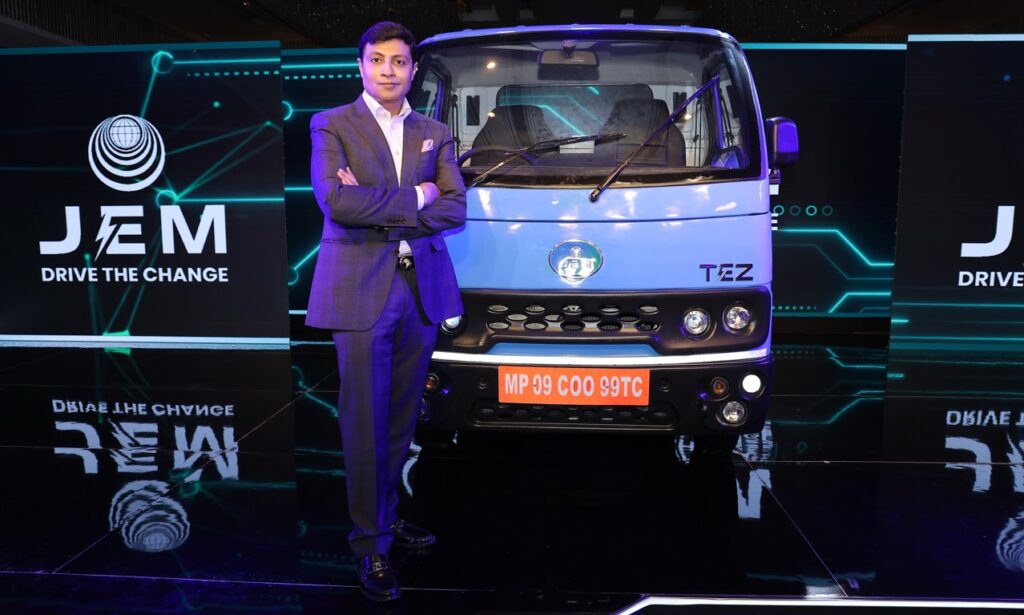
The newly inaugurated manufacturing facility spans 2.5 acres and is designed to produce 8,000–10,000 electric vehicles annually. With plans for phased capacity expansion, this plant aims to meet the growing demand for sustainable last-mile logistics solutions. The facility aligns with India’s Make in India and Vision@2047 initiatives, further contributing to the country’s goal of reducing import dependency and increasing domestic EV manufacturing.
“We aim to set new EV industry benchmarks while driving economic growth, infrastructure development, and job creation,” said Mr. Vivek Lohia, Managing Director of Jupiter Group, during the inauguration. He emphasized the company’s goal to achieve ₹100 crore in revenue in its first year of operations, with a projected year-on-year growth of at least 2X. Jupiter Electric Mobility’s integrated ecosystem, which ensures reliability and sustainability for commercial fleet operators, reflects its commitment to innovation and a cleaner, greener future.

National Expansion Strategy and Key Market Rollout
The company’s national expansion strategy includes a state-wise rollout of the JEM TEZ, focusing initially on key markets like Bengaluru, Delhi, Hyderabad, Ahmedabad, Mumbai, Kolkata, and Chennai. JEM is also building strategic partnerships with key industry players such as Porter, Pulse Energy, and Tapfin to develop an integrated EV ecosystem that includes charging infrastructure, financing solutions, and after-sales support. These collaborations are expected to expand JEM’s market presence and accelerate the adoption of electric vehicles across India.
Innovative Technology and Connectivity in JEM TEZ
The company’s innovation extends beyond the vehicle’s design and manufacturing process. JEM has developed a robust ecosystem of technology and connectivity. The vehicle integrates telematics and real-time vehicle diagnostics, enabling preventive maintenance and seamless communication with fleet operators. “Our vehicle is fully connected. We have integrated telematics and vehicle diagnostics, feeding real-time data to our data center,” explained Mr. Vivek. Additionally, the high-voltage platform provides a real-world range of about 190 kilometers, a significant improvement over competitors, whose vehicles typically offer ranges of only 115–120 kilometers.
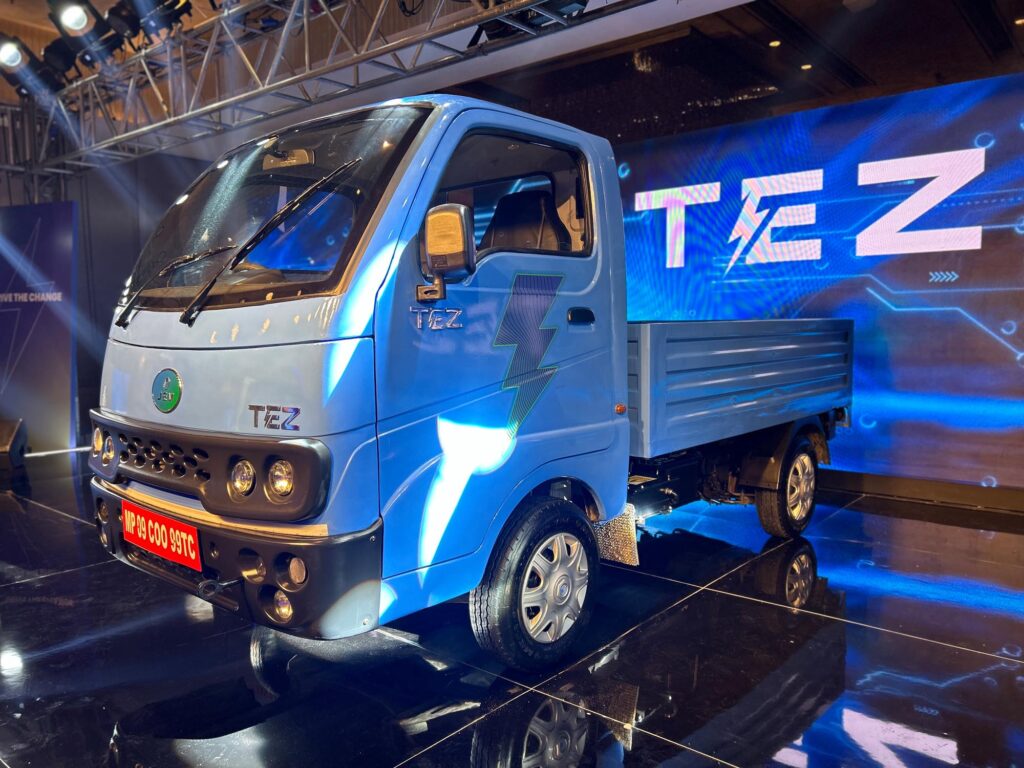
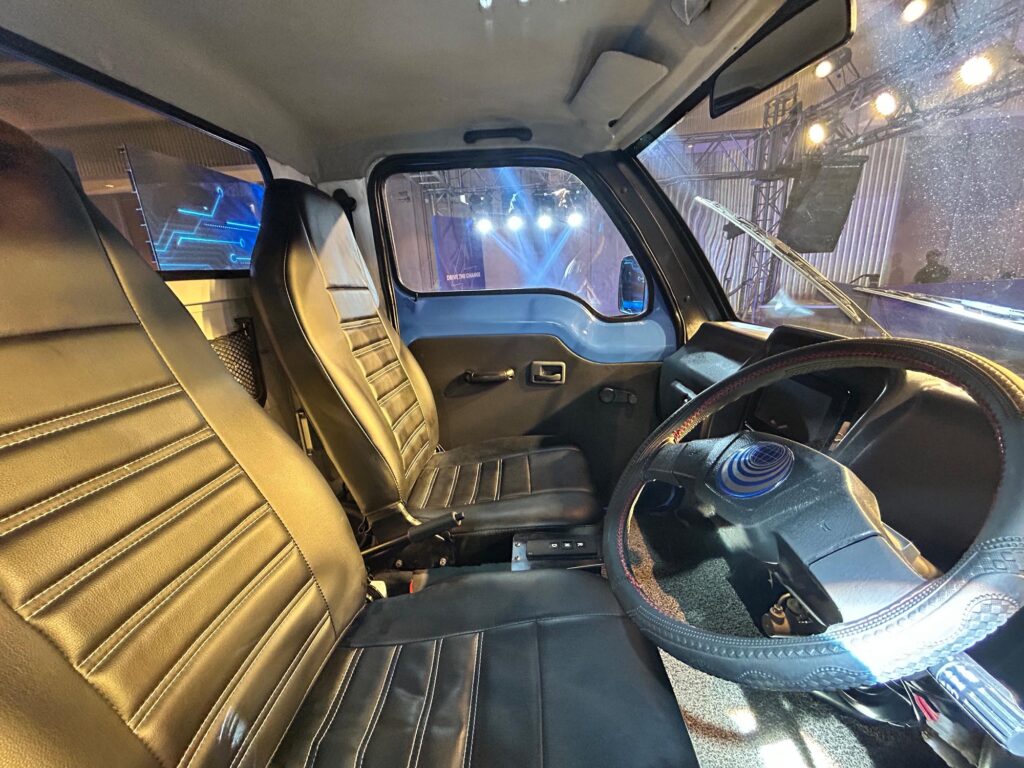
However, despite the strong potential for growth, Mr. Vivek acknowledges the challenges that lie ahead for the EV industry. Consumer education and charging infrastructure remain significant barriers to the widespread adoption of electric vehicles. “The biggest challenge is the charging infrastructure, which is currently inadequate beyond two or three cities. The government is committed to addressing this through initiatives like FAME III,” he noted, expressing optimism that infrastructure improvements will accelerate the adoption of EVs.
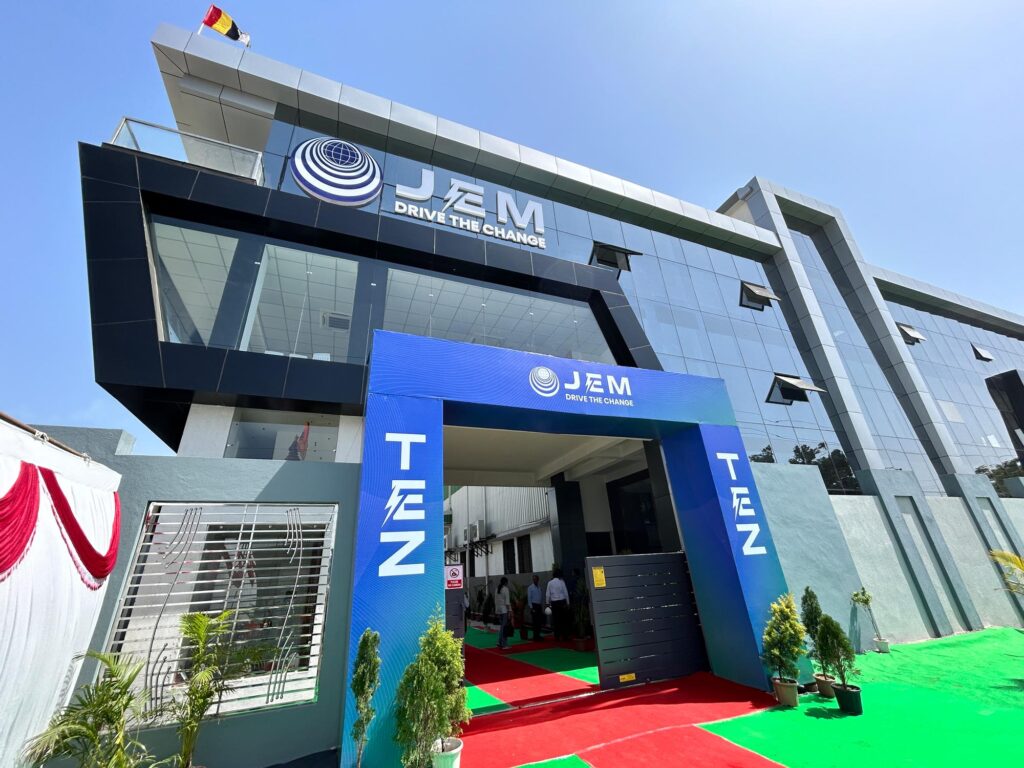
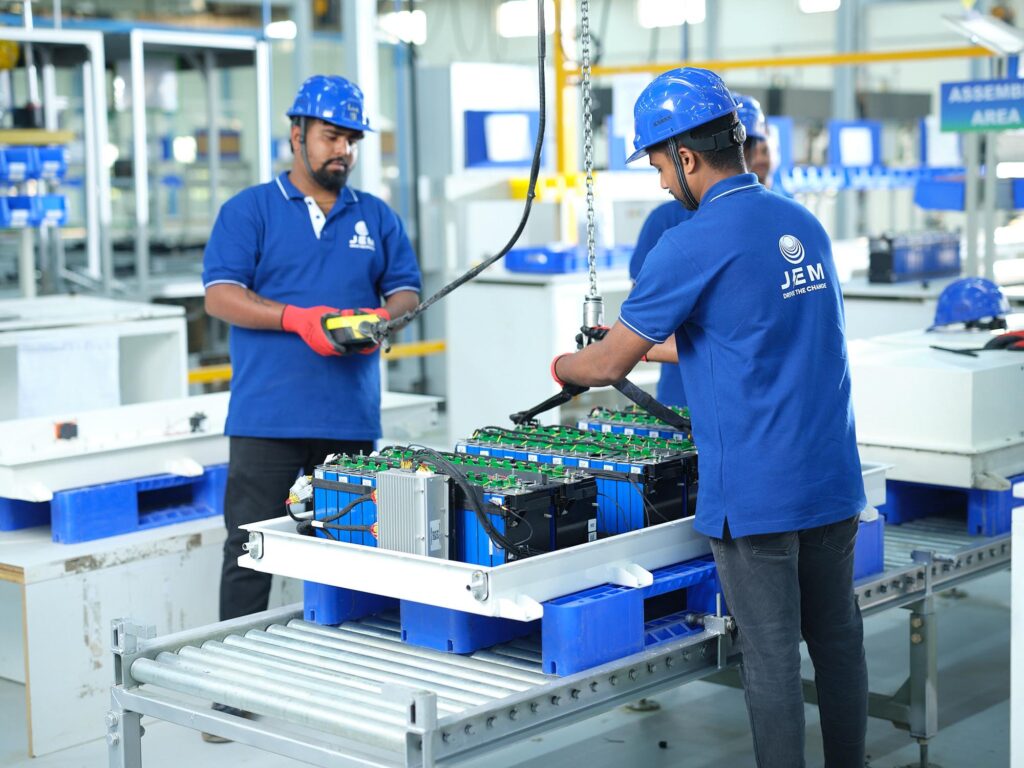
JEM’s approach to after-sales service is also a key differentiator. The company has developed the JEM Drishti system, a proprietary telematics platform that enables remote monitoring of vehicle performance, driver behaviour, and payload conditions. This system helps operators maximize efficiency and minimize downtime, which is crucial in the logistics industry.
As JEM continues to grow, the company has ambitious plans for future expansion. “Our goal this year is to launch our 2-ton and 3-ton vehicles, along with a passenger variant of the 1-ton vehicle. We aim to offer a full product range within this category,” Mr. Vivek shared. This diversification will cater to the evolving needs of the market, particularly in the last-mile logistics segment.
Meanwhile, Mr. Vikash Lohia, Deputy Managing Director of Jupiter Group, emphasized the significance of the new plant, stating, “It’s a very surreal feeling to contribute to India’s growth towards green mobility, which I think is very important. So we are very excited.” He outlined that the initial production capacity of the plant is set to produce 8,000 to 10,000 vehicles annually, with a slow ramp-up strategy to ensure a strong foundation for customer service. “We believe in establishing ourselves and we believe in customer service first,” he added, signalling the company’s commitment to quality and customer satisfaction.
JEM’s vision for the future includes expanding its product portfolio and introducing new variants to meet evolving market demands. Mr. Vikash also highlighted the company’s long-term plans to build more advanced facilities, with a focus on innovation and robotics. “We’ll have a new facility, a much bigger facility than what we have right now in Pithampur, with much more advancement in robotics,” he said, pointing to the company’s growth strategy in the coming years.
As JEM embarks on its journey to become a leader in electric commercial vehicles in India, the company remains focused on sustainability, customer-centric innovation, and technological advancements. With a commitment to reducing India’s dependency on imports, strengthening domestic manufacturing capabilities, and creating an integrated EV ecosystem, Jupiter Electric is poised to drive the country’s transition toward clean and sustainable mobility. “We believe in innovation and for us, the customer comes first,” Mr. Vikash concluded, emphasizing the company’s customer-first approach as it scales its operations in the rapidly evolving EV market.


